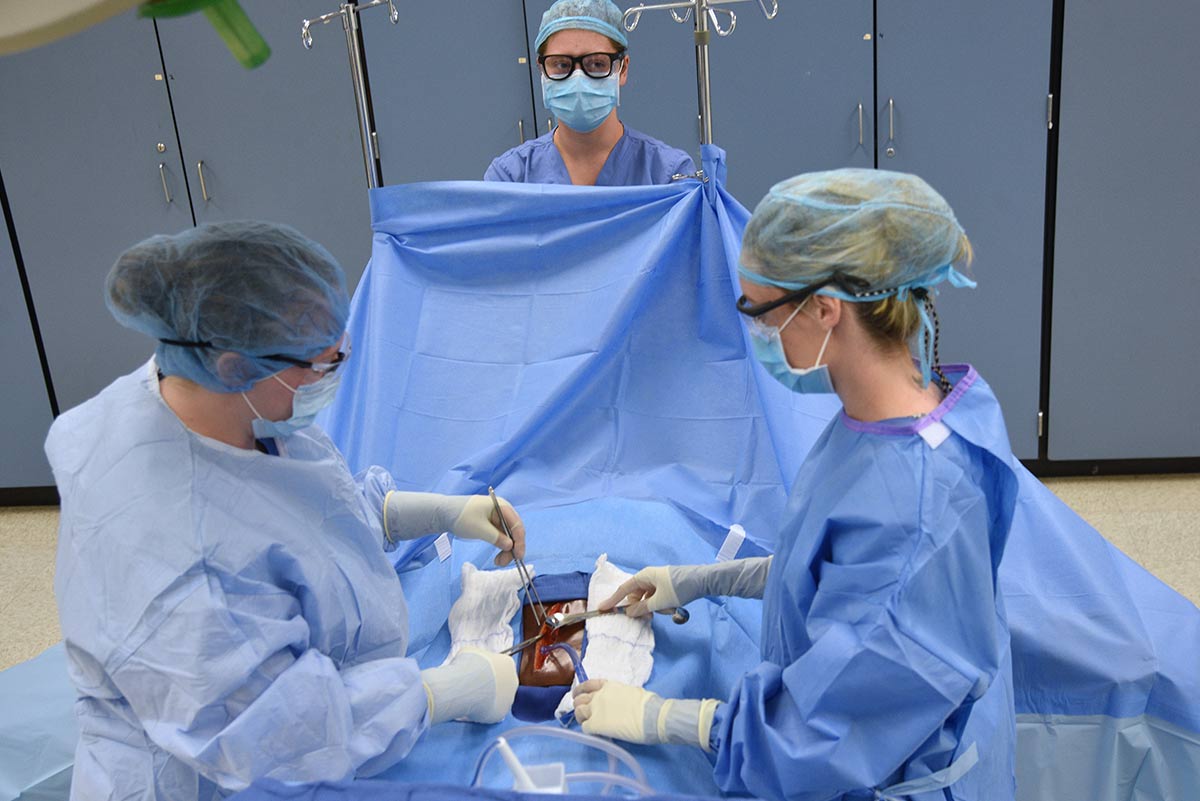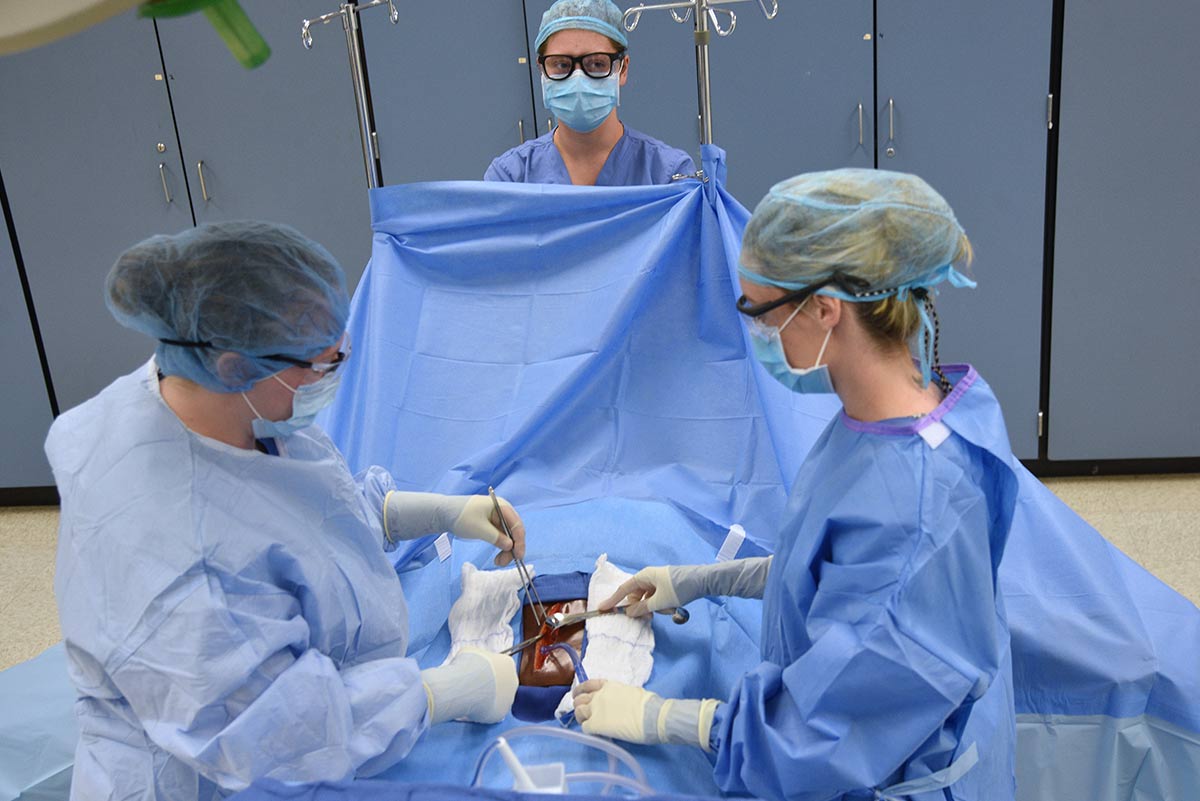Surgical tech programs near me with financial aid options: Want to become a surgical technologist but worried about the cost? This guide breaks down how to find affordable programs in your area. We’ll cover everything from identifying financial aid opportunities like grants and scholarships to choosing the right accredited program and understanding the application process. Let’s get you started on your path to a rewarding career!
Finding the right surgical technology program is a big decision. This guide helps you navigate the process by providing resources to locate nearby programs, understand their curriculum, and secure the financial aid you need. We’ll explore different financial aid options, discuss program accreditation, and offer insights into the career outlook for surgical technologists. Prepare to learn how to make an informed choice and launch a successful career.
Financing Your Surgical Tech Education: Surgical Tech Programs Near Me With Financial Aid Options
Becoming a surgical technologist is a rewarding career path, but funding your education can seem daunting. This section breaks down various financial aid options and how to navigate the application process to make your dream a reality.
Financial Aid Options for Surgical Technology Programs

Several avenues exist to finance your surgical technology education. Understanding the differences between these options is crucial for making informed decisions.
- Grants: These are essentially free money awarded based on financial need or merit. Many federal and state grants are available, as well as those offered by specific colleges and healthcare organizations. The application process usually involves completing the Free Application for Federal Student Aid (FAFSA).
- Scholarships: Similar to grants, scholarships are often awarded based on academic achievement, community involvement, or demonstrated financial need. Many organizations, including professional associations and healthcare foundations, offer scholarships specifically for students pursuing healthcare careers.
- Loans: Loans provide funds that must be repaid with interest. Federal student loans often offer more favorable terms than private loans. The application process typically involves completing the FAFSA for federal loans and applying directly to lenders for private loans.
Applying for Financial Aid
The application process for financial aid varies depending on the type of aid. However, the FAFSA is a common starting point for many federal and state aid programs. Many scholarship applications require essays, transcripts, and letters of recommendation. It’s crucial to carefully review the requirements for each application and submit everything on time.
Organizations Offering Financial Aid for Healthcare Professions
Numerous organizations offer financial assistance specifically for students pursuing healthcare careers. Examples include the American Association of Surgical Technologists (AST), the American Medical Association (AMA), and various hospital foundations and healthcare systems. Check their websites for specific scholarship and grant opportunities.
Comparing Financial Aid Options

| Aid Type | Pros | Cons | Application Process |
|---|---|---|---|
| Grants | Free money, no repayment required | Competitive, often based on need or merit | FAFSA and individual program applications |
| Scholarships | Free money, no repayment required | Competitive, specific criteria may apply | Individual program applications, essays, transcripts |
| Loans | Access to funds for tuition and expenses | Must be repaid with interest, can lead to debt | FAFSA (for federal loans), lender applications (for private loans) |
Finding Surgical Tech Programs
Locating a suitable surgical technology program involves careful research and consideration of several key factors. This section will guide you through the process.
Resources for Finding Accredited Programs
Several resources can help you locate accredited surgical technology programs in your area. The Commission on Accreditation of Allied Health Education Programs (CAAHEP) and the Accreditation Review Council on Education in Surgical Technology and Surgical Assisting (ARC/STSA) maintain lists of accredited programs. You can also search online using your zip code, city, or state.
Choosing a Surgical Tech Program
Selecting the right program is crucial for your success. Consider these factors:
- Accreditation: Ensure the program is accredited by CAAHEP or ARC/STSA. Accreditation signifies that the program meets specific quality standards.
- Location and Commute: Choose a program conveniently located to minimize travel time and expenses.
- Program Length: Consider the program’s duration and whether it aligns with your schedule and goals.
- Reputation and Faculty: Research the program’s reputation, faculty expertise, and student success rates.
- Clinical Rotations: Investigate the program’s clinical affiliations and the opportunities for hands-on experience.
Questions to Ask Potential Programs
Before committing to a program, prepare a list of questions to ask during the admissions process or open house events.
- What is the program’s graduation rate?
- What is the job placement rate for graduates?
- What are the clinical rotation sites?
- What support services are available to students?
- What is the cost of the program, including tuition, fees, and books?
Importance of Program Accreditation
Accreditation is vital. It ensures the program meets nationally recognized standards, increasing the likelihood of licensure and employment opportunities after graduation. Many employers only hire graduates from accredited programs.
Thinking about becoming a surgical tech? Finding programs near you that offer financial aid is key. Take a quick break to check out this awesome game recap – PULISIC IS THE MVP FROM JUVENTUS v AC MILAN – then get back to researching those amazing surgical tech programs and their financial aid options! It’s a rewarding career path, so don’t let finances hold you back.
Surgical Tech Program Curriculum and Career Outlook
Understanding the curriculum and career prospects is vital before embarking on this educational journey.
Surgical Technology Program Curricula
Surgical technology programs typically combine classroom instruction (didactic coursework) with hands-on clinical experience (rotations). Didactic coursework covers anatomy, physiology, surgical procedures, sterilization techniques, and medical terminology. Clinical rotations provide practical experience in various surgical settings, allowing students to apply their knowledge under the supervision of experienced surgical technologists.
Essential Skills and Knowledge
Successful surgical technologists possess a blend of technical skills and soft skills. Technical skills include sterile technique, instrument handling, and knowledge of surgical procedures. Soft skills include teamwork, communication, problem-solving, and adaptability.
Job Market Outlook and Salary Expectations, Surgical tech programs near me with financial aid options
The job market for surgical technologists is generally positive, driven by an aging population and increasing demand for surgical procedures. Salary expectations vary depending on location, experience, and employer. However, a competitive salary and benefits package is typical. Geographic variations in demand exist, with larger metropolitan areas often offering more opportunities.
A Day in the Life of a Surgical Technologist
A typical day involves preparing the operating room, sterilizing instruments, assisting the surgical team, and maintaining a sterile environment. Specific tasks vary depending on the surgical specialty and the surgeon’s preferences. The role demands precision, attention to detail, and the ability to work effectively under pressure.
Admissions Requirements and Application Process
The application process is a critical step. Careful preparation and attention to detail are key to success.
Typical Admissions Requirements
Most surgical technology programs require a high school diploma or GED, and may require prerequisite courses in science and math. Some programs may also require entrance exams, such as the TEAS exam.
Application Process Steps
The application process typically involves submitting an application form, transcripts from previous educational institutions, letters of recommendation, and possibly a personal essay or statement of purpose. Meeting all deadlines is crucial.
Looking for surgical tech programs near me with financial aid? Finding the right funding can be tricky, but it’s totally doable! Think about how focused Luke Littler is in his pursuit of darts mastery, as shown in this awesome profile: Luke Littler: the mind and the making of darts’ youngest world. That kind of dedication pays off! Similarly, with a little research, you can find the perfect surgical tech program and the financial support to make your dreams a reality.
So get searching!
Creating a Strong Application

A strong application highlights your qualifications and suitability for the program. This includes a well-written personal statement, strong academic record, and compelling letters of recommendation that showcase your character and commitment to the field.
Application Checklist
- Completed application form
- Official high school transcript (or GED)
- College transcripts (if applicable)
- Letters of recommendation
- Entrance exam scores (if required)
- Resume or curriculum vitae
- Personal essay or statement of purpose
Successful Surgical Technologist Careers
Several examples illustrate the potential for career growth and fulfillment in this profession.
Illustrative Examples of Successful Careers
Here are examples of career paths, focusing on education, experience, and career progression. Note that these are illustrative examples, and individual experiences will vary.
Sarah, after completing her associate’s degree, worked for five years in a busy hospital, gaining experience in various surgical specialties. She then pursued a bachelor’s degree in healthcare management, leading to a supervisory role within the surgical department.
John, with a strong interest in orthopedics, focused his clinical rotations in that area. After graduation, he secured a position in a specialized orthopedic clinic, quickly becoming a valued member of the team. His expertise led to opportunities for professional development and mentorship of new surgical technologists.
Thinking about a career as a surgical tech? Awesome! Finding the right program is key, and that includes checking out your funding options. Luckily, there are resources to help you find surgical tech programs near me with financial aid options , so you can focus on your studies. Don’t let finances hold you back from pursuing this exciting field; explore your options and get started today!
Maria, initially faced challenges balancing work and family while pursuing her education. However, her determination and support from her family and mentors allowed her to complete her program and secure a position in a reputable surgical center.
Concluding Remarks
Becoming a surgical technologist is a challenging yet fulfilling career path. By utilizing the resources and information provided in this guide, you can confidently navigate the process of finding an accredited program near you and securing the financial assistance you need. Remember to research thoroughly, ask questions, and build a strong application. With dedication and planning, you can achieve your goal of becoming a skilled and successful surgical technologist.
Question Bank
What is the average salary for a surgical technologist?
Salaries vary by location and experience, but generally range from $45,000 to $65,000 annually.
How long does it take to complete a surgical tech program?
Program lengths typically range from 9 months to 2 years.
Are there online surgical tech programs?
While some programs offer online components, most require significant hands-on clinical experience, making fully online programs rare.
What if I don’t qualify for federal financial aid?
Explore private scholarships, grants from professional organizations, and hospital-sponsored programs. Many hospitals offer tuition reimbursement for employees pursuing healthcare careers.
Can I work while attending a surgical tech program?
This depends on the program’s intensity and your personal circumstances. Many students work part-time, but it’s important to manage your time effectively.
